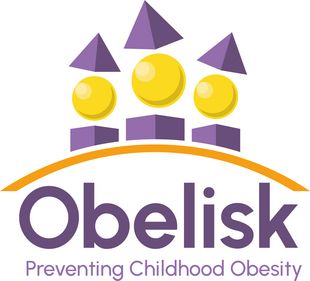According to a 2022 World Health Organization (WHO) report, one in three European primary school children is either overweight or obese – and numbers are rising. Obesity among teenagers has increased from 6 percent in 1980 to an alarming 32 percent. Since effective treatment of obesity in adulthood is usually complex and challenging, the aim should be to prevent and treat obesity at an earlier age to reduce the risk of serious complications, such as type 2 diabetes and cardiovascular diseases.
For this reason, the new international research project OBELISK (Prevention of obesity throughout the life course) aims to prevent childhood obesity and combat its underlying causes. A total of 15 partners from universities, research facilities, and small and medium-sized enterprises from nine European countries are involved in the five-year project, including the German Institute of Human Nutrition Potsdam-Rehbrücke (DIfE).

The first OBELISK project meeting in early June 2023 at INSERM - Institut National de la Santé et de la Recherche Médicale (National Institute of Health and Medical Research) in Lille. © Noëlie Colinet
Understanding Genetic Mutations
Prof. Annette Schürmann, head of the Department of Experimental Diabetology, and PD Dr. Heike Vogel, head of the research group Genetics of Obesity, have been working for many years on genetic changes that contribute to the development of obesity. As part of the OBELISK project, with Dr. Meriem Ouni, a research associate at the Department of Experimental Diabetology, their focus will be on the (epi)genetic changes in muscle and adipose tissue. “We will compare mice after a program of intermittent fasting and after four weeks of physical training,” explains Schürmann. “We will also compare obese patients before and one year after bariatric (weight-reducing) surgery,” adds Vogel.
In cooperation with other project partners, the identified gene mutations will be compared with those known to exist in children. The most promising candidate genes will subsequently undergo in vitro and in vivo manipulation using CRISPR/Cas9 technology to characterize their function. The combination of human genetics, experimental characterization, and predictive modeling should enable the identification of novel obesity genes that may be significant for the future development of pharmaceuticals.
11.2 Million Euros for Life-Long Obesity Prevention
On June 6 and 7, 2023, the OBELISK consortium met for the first time in Lille at INSERM - Institut National de la Santé et de la Recherche Médicale (National Institute of Health and Medical Research) to initiate the project together. The research project is financed with €9.5 million from the European Union research and innovation program “Horizon Europe” and a further €1.7 million from research funding agencies in the United Kingdom and Switzerland. The DIfE project team will receive approx. €400,000 to fund its research.
Background Information:
The OBELISK research project aims to decipher the molecular mechanisms that cause the transition from average weight to obesity during childhood. It seeks to identify new genes associated with severe childhood obesity and develop new drug-based therapies. Furthermore, it will also investigate the effectiveness of targeted approaches for preventing the disease during childhood. This includes new treatments for the reversal of obesity in children who have mutations resulting in a predisposition for the development of severe obesity.
OBELISK uses an approach, both at the research level and in disseminating project results, based on the following four principles: Prediction, Prevention, Precision, and Participation. This 4P approach creates space for social innovation by involving families, scientific and medical communities, daycare centers, schools, policymakers, and industry.
The OBELISK website will be available in October 2023. In the meantime, interested parties can check the progress of the project on the Twitter page @ObeliskProjectE.

